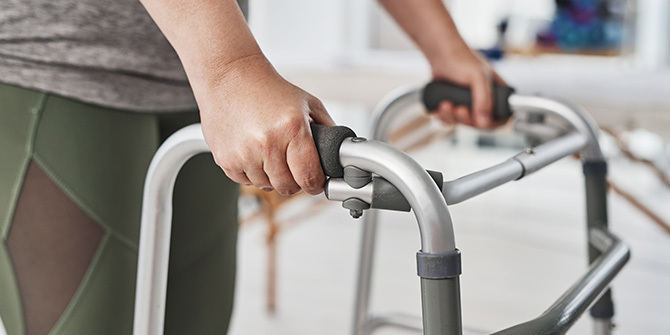
If you’re young, healthy and able to work, is disability insurance necessary? The answer is yes! According to the Council on Disability Awareness, just over one in four of today’s 20-year-olds will become disabled before they retire. The Council says these long-term absences from work can be attributed to accidents, but also to back injuries or serious illness. If you’re unable to work, disability insurance can provide income to pay bills and provide for your family at any age. Here’s what you need to know if you’re considering a policy.
What is disability insurance?
There are two types of disability insurance policies to consider: short-term and long-term.
Short-term disability insurance could help if you have an illness or injury severe enough to keep you out of work beyond your accrued sick or vacation time. Short-term policies typically replace your income for a period anywhere from 13 weeks to two years. Some policies may require a waiting period of up to four weeks after you’ve filed a disability claim before payments begin.
Long-term disability insurance may provide benefits to you for many years. That’s why it’s especially important for young people to consider getting this type of coverage. If you’re severely injured when you’re 35, for example, and unable to work for years, that’s a long time to go without a source of income. The waiting period here is usually anywhere from one to three months, on average. Long-term disability policies can pay out up to age 65, but the average is 34.6 months.
Depending on your situation, you may want to get both types or just one.
What does disability insurance cover?
Disability insurance only replaces a percentage of your income — potentially up to 60%. Some policies may only pay if you can’t perform the duties of your current job — called “own occupation.” Other policies may only pay if you can’t perform the duties of any available job or “any occupation.”
Disability insurance also helps protect your finances. The risk of not having coverage is that you could quickly drain your emergency fund and any other savings you’ve accumulated, while you’re out of work.
How to get coverage
The most affordable way to get disability coverage is through your employer. Talk to your human resources representative about your options and have the premiums automatically deducted from your paycheck.
If your employer doesn’t offer it, your insurance agent may be able to provide a policy. Policies vary from company to company, so review them carefully.
Be sure to ask these questions when doing your research:
- What does this insurance company define as disability?
- How are the benefits paid out?
- Is the quoted premium price competitive with other companies or policies?
So, why buy disability insurance? A policy can help provide needed income and help protect your savings in case you’re unable to work. Calculate your disability insurance needs to see how a policy might fit your budget, then talk to your employer or insurance agent.
The advice provided is for informational purposes only. Contact your insurance advisor for additional guidance.